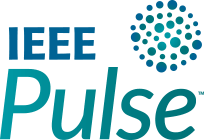Transitioning from undergraduate to graduate school is a looming obstacle in the academic journey of many biomedical engineers. To better understand this transition, we’ve invited one person to discuss her trek from an undergraduate degree to a graduate lab, including insights about current research and advice to prospective graduate students.
Sam Gorlewski, a BME master’s student at Wake Forest School of Medicine, NC, USA, recognized the potential of applying machine learning (ML) to the modeling of brain metastases. ML provides efficient and effective methods of modeling data without compromising accuracy and requiring minimal human intervention. From this extensive field of study, Sam identified a type of model well-suited to the dilemma of accurately detecting brain metastases in medical imaging: physics-informed neural networks (PINNs). Like all neural networks, PINNs are computer programs containing nodes (or neurons) that transmit signals to each other. These models include an input and output(s) connected by neurons. The weights of each node/neuron vary depending on the network’s training.
The “physics-informed” nature of PINNs allows the neural network to have a known physical law embedded into the model’s learning process. These neural networks, within the context of this project, are most useful due to their ability to utilize abstract laws, like a logistic growth population curve. Another advantage of PINNs is their ability to provide insight into the methodology used to provide a solution. Conventional neural networks create a black box that provides little concrete insight into how an output is produced. While this characteristic is acceptable in many applications, the field of medicine requires the explicit justification of treatment methods. Besides the ethical implications associated with blindly trusting a model to determine health care, this also poses obstacles to diagnosing problems and inconsistencies with the model.
For example, typical treatment of brain tumors consists of precisely targeted radiation. Gamma knife is one of those treatments that is associated with fewer side effects, but like other methods of targeted radiation therapy can result in radiation necrosis of the brain’s tissues. The result of this cell death is fluid build-up within the boundaries of the original mass. Radiation necrosis and brain tumors appear very similar on medical imaging scans. Differentiating between the two conditions is critical due to the opposing nature of their treatments.
Based on this obstacle, Gorlewski identified the need for an imaging-based model that accounts for biology and physics to predict tumor cell behavior. This model is meant to act as a noninvasive, “virtual biopsy” to evaluate tumor growth and stress on the tissues surrounding the mass. For those wondering how he progressed from a BME undergraduate student to employing ML models to aid in the treatment of cancer, Gorlewski answered several questions related to her postsecondary education experience and advice on pursuing graduate school.
IEEE Pulse: What undergraduate classes and practical skills were the most beneficial for your graduate school career?
Gorlewski: My work is very heavily programming-based. The only class we did intensive programming in was Intro to Neural Engineering. I wish we had courses focused on Python and ML, outside of the Computer Science Department. We were taught C++ and MATLAB, but neither is particularly useful for me. Many of my classmates have concentrations that combine computer modeling and several other practices, but I focus on computer modeling and medical imaging, so my interests are very specialized.
In graduate school, you’re doing your own project management. Your advisor is not going to be constantly hovering over your shoulder. I’ve had to make a lot of choices where a decision might get the project running quicker but might have long-term consequences like having to overhaul the entire project. I usually choose the more “difficult to set up option” so that it pays off in the long run.
IEEE Pulse: Is there a competitive element in graduate school classrooms?
Gorlewski: The reputation of American schooling has historically been very cutthroat. I feel like in some regards, it’s still very competitive because I’ve heard international students say things like: “You guys take this much more seriously.” But in terms of the newer generation of professors, they’re phasing out that you versus me mentality. As an engineer, you’re going to work in groups. It’s not you versus me, it’s all of us versus the problem.
In grad school, professors are given a bit more free rein in what they can use for a grading system. Some professors are very lenient, you get credit for simply participating in class and earnestly attempting the work. Other professors are very harsh. But in grad school, they want you to succeed. They’re going to do their best to help you succeed and the rest is up to you.
IEEE Pulse: Do you have any advice for incoming graduate school students? How does that advice differ for undergraduate students who are considering graduate school?
Gorlewski: First off, when you’re figuring out your research project, try to sit down in advance with your advisor to determine what the general steps are to get the project done and what classes will give you knowledge relevant to your project. All grad schools have credit requirements, but they give you a lot of freedom on how you fulfill those requirements. Talk with your advisor and your professors. If you need help, do not hesitate to reach out to them. That includes asking for help on mental health related issues.
Also, learn to budget your time as soon as you can and as best as you can. You are responsible for staying on track for the entirety of your degree.
If you are undecided about graduate school, you can audit a course. Auditing is where you are not taking a course for credit (it would not count toward a degree), but it is a lot cheaper than if you took the course for credit. An audited course won’t impact your [grade point average] GPA or fulfill program requirements. For students who really aren’t sure, or don’t want to commit to two or five-year programs, that is a great option. There are also some jobs where they will do a co-op deal. They will partially sponsor you through graduate school, so long as you satisfy their GPA and course requirements while you work for them.
IEEE Pulse: How do you feel graduate school is preparing you for the future?
Gorlewski: My work is primarily computational. In terms of being prepared for engineering and computer science jobs, my programming skills are much better than they were right out of undergraduate school. I started with absolutely no knowledge of Python and now it’s the foundation for my research.
I also know a lot more about cancer than I did in undergrad. Cancer biology is a very specialized field, and cancer behavior is very different than what is taught in a lot of general biology courses found in undergraduate school.
I would say my public speaking skills have improved as well. I had to give a talk at a science fiction convention in front of an unknown audience. It was a group that was very receptive to learning about science but likely not aware of the intricate parts of my field. Knowing your audience is one of the most important lessons I’ve learned in graduate school.


